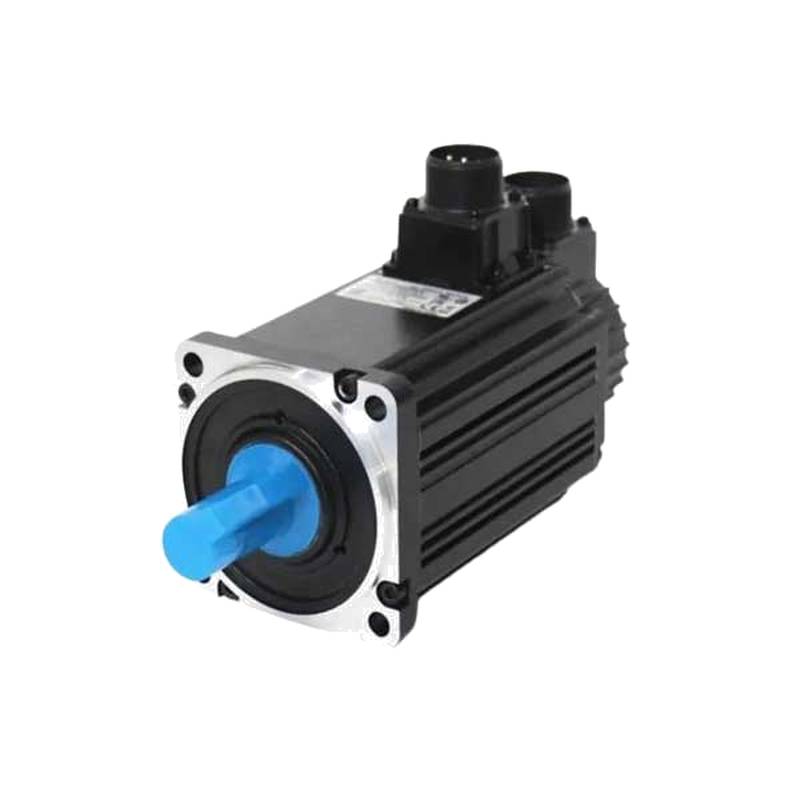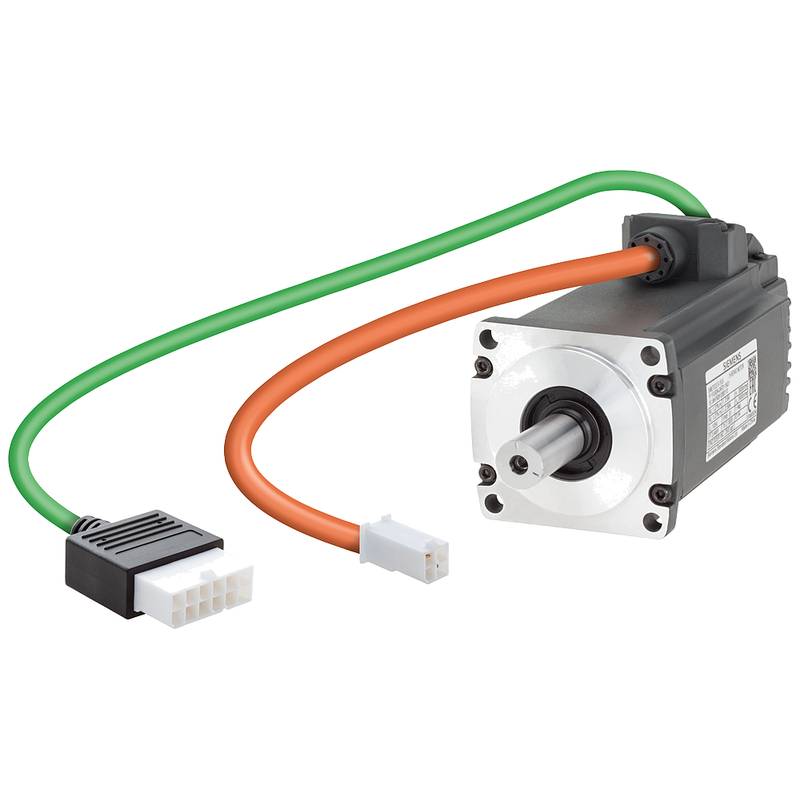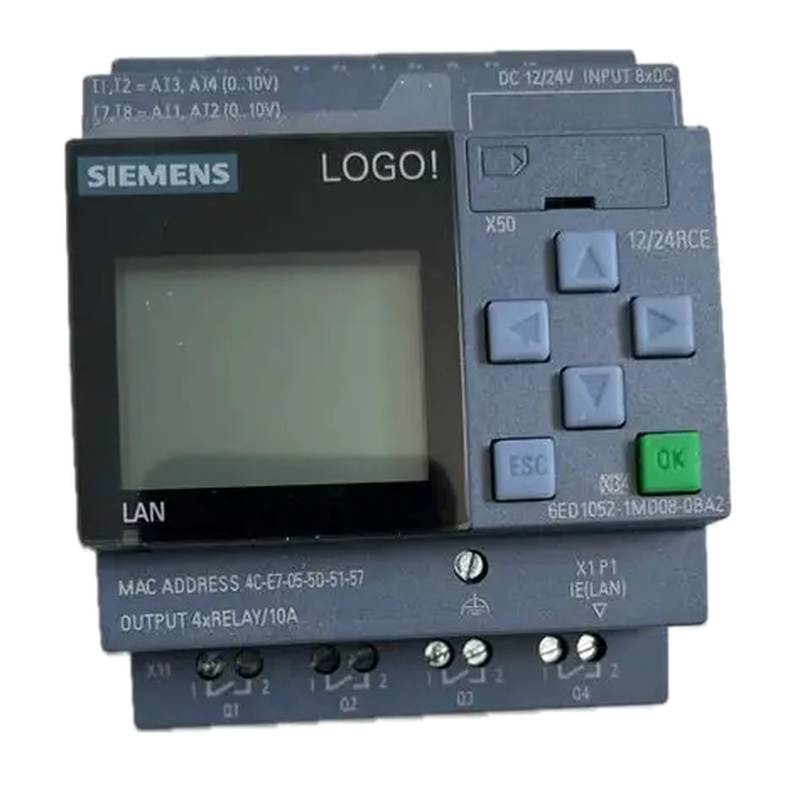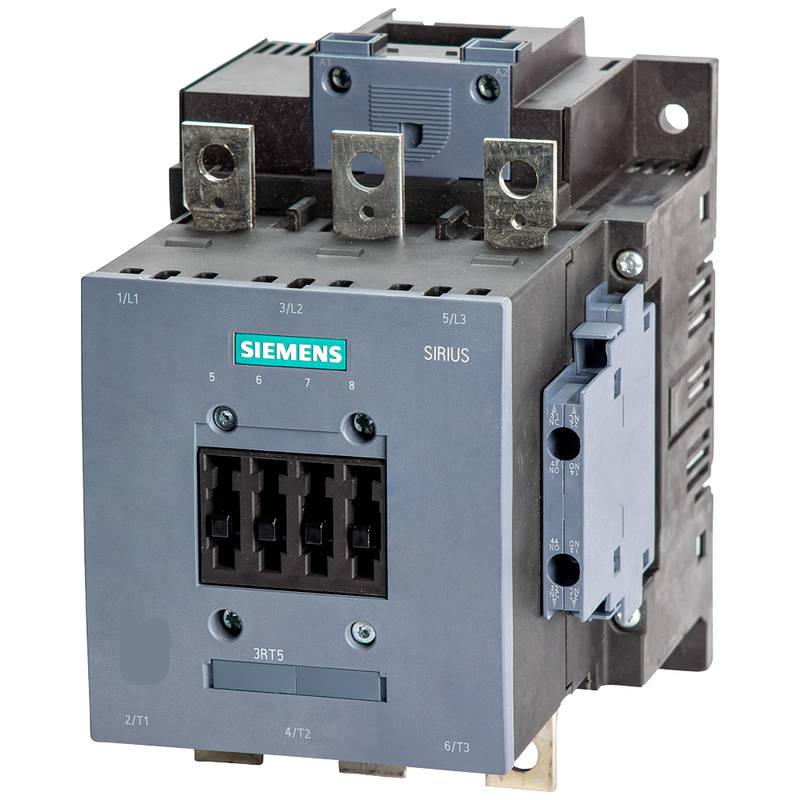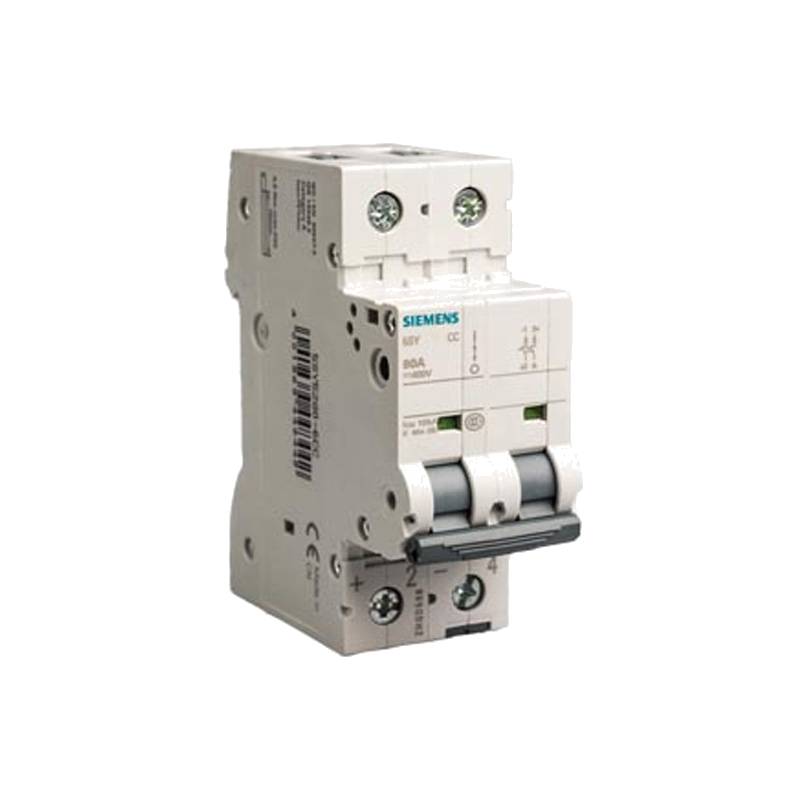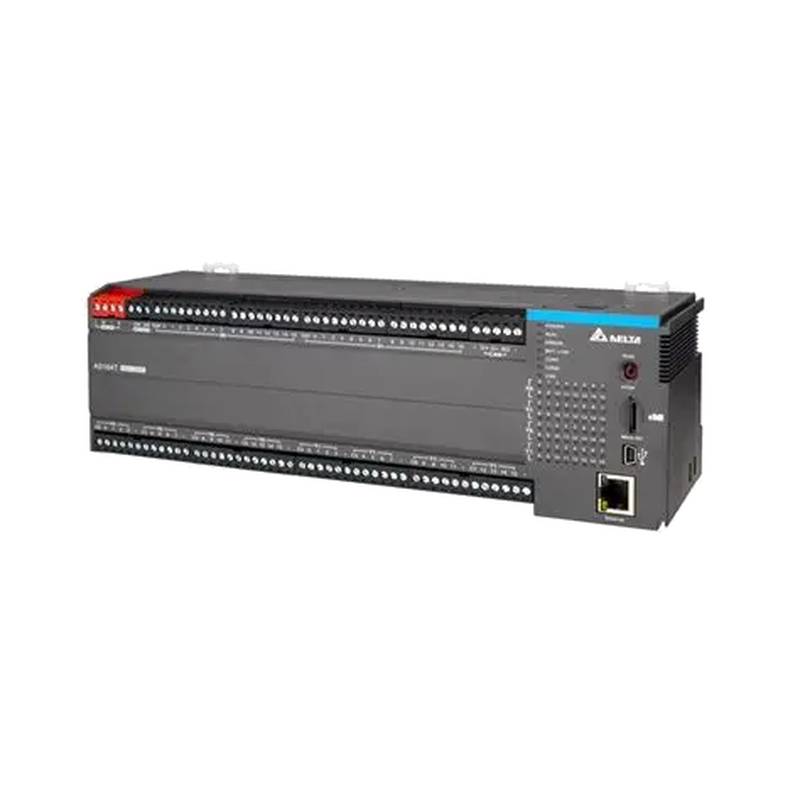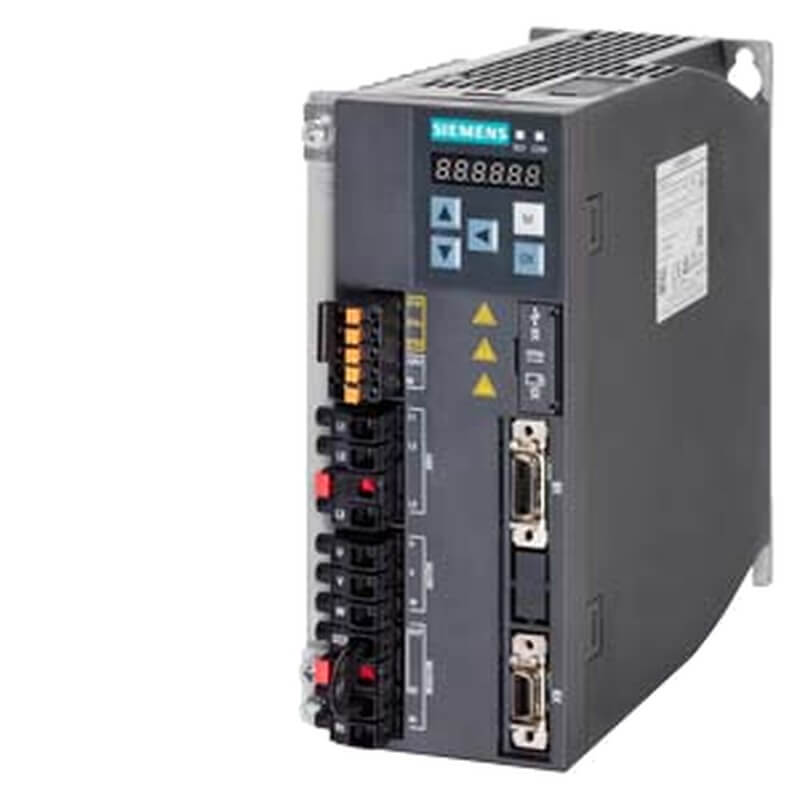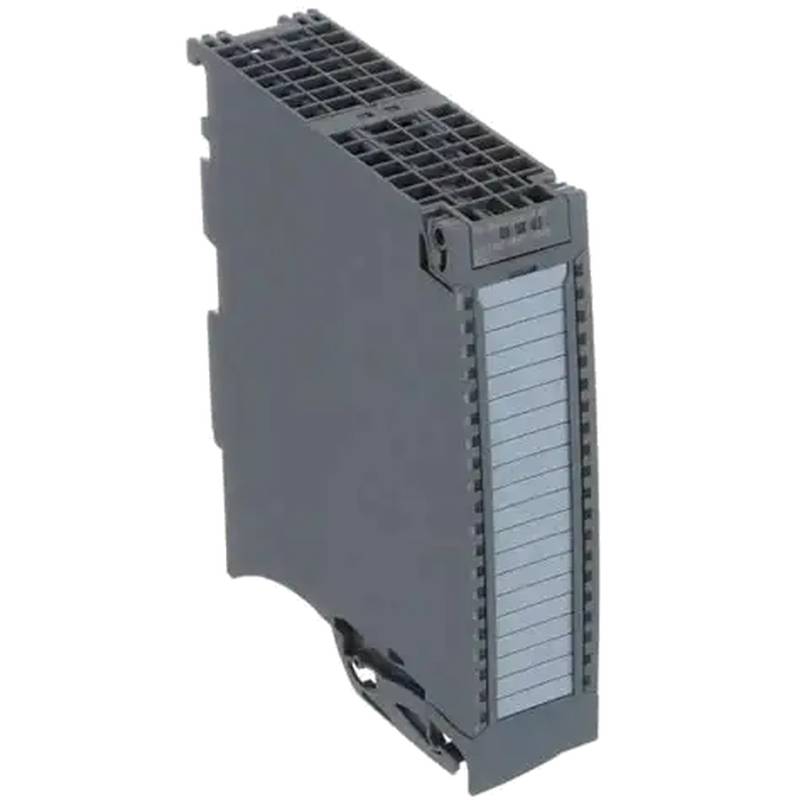
The Delta ECM-B3H-LA1318RS1 B3 Series Servo Motor is engineered for high-performance industrial automation, delivering exceptional precision and efficiency. This servo motor integrates advanced control algorithms and a new generation motor design to optimize production processes. Key advantages include enhanced responsiveness, reduced settling times, and superior torque capabilities, making it a robust choice for demanding applications. The ECM-B3H-LA1318RS1 boasts a 24-bit resolution encoder for precise feedback and features embedded Safe Torque Off (STO) SIL2 functionality for enhanced operational safety. Its compact design and high power density contribute to space savings and improved equipment integration.
Product Specifications
| Parameter | Value |
| :--------------------- | :------------------------------------------- |
| Series | ASDA-B3 |
| Motor Type | AC Servo Motor |
| Power | Varies by model (ECM-B3H-LA1318RS1 specific wattage not directly listed, but other B3H models range from 0.2kW to 2.4kW) |
| Voltage | Typically 200V class (for B3H models) |
| Max. Speed | Up to 6000 rpm |
| Max. Torque | 350% of rated torque |
| Encoder Resolution | 24-bit absolute encoder |
| Communication | EtherCAT (up to 8 kHz), CANopen, Pulse Train |
| Safety Features | Embedded STO SIL2 |
| Inertia Options | Medium, High, Ultra High |
| Dimensions | Compact design, 30% shorter than ECMA series |
Core Features & Market Positioning
The Delta ECM-B3H-LA1318RS1 servo motor is positioned as a premium solution within the industrial automation market, emphasizing its technological advancements over previous generations and competitors. Its high response bandwidth, reaching up to 3.1 kHz, significantly reduces settling times by approximately 40% compared to earlier models. This heightened performance is coupled with a 24-bit absolute encoder, providing superior positional accuracy and feedback resolution. The inclusion of advanced features such as an auto-tuning function, gain adjustment, system analysis interface, and vibration suppression underscores its capability for precise and stable operation. The motor's market appeal is further strengthened by its energy efficiency and built-in safety features like STO SIL2.
Key Application Scenarios
The Delta ECM-B3H-LA1318RS1 servo motor is ideally suited for a diverse range of high-precision and high-speed industrial applications. Its ability to deliver superior torque and speed makes it a prime candidate for tasks in manufacturing, robotics, and advanced automation systems. Specific use cases include semiconductor manufacturing equipment, such as wafer pick-and-place machines, where rapid and accurate positioning is critical. It is also highly effective in machine tools, electronics assembly, industrial robots, printing and packaging machinery, textiles, and warehousing systems. The motor's precise force control capabilities are beneficial in applications like diamond cutting machines. Its versatility allows for seamless integration into both simple and complex automation architectures, enhancing overall production efficiency and output value across various industries.
Practical System Integration Guidance
Integrating the Delta ECM-B3H-LA1318RS1 servo motor into existing systems is facilitated by its flexible communication options and user-friendly interface. The ASDA-B3 series supports high-speed communication buses such as EtherCAT, enabling efficient axis synchronization and precise gantry control. It also accommodates traditional control methods like pulse train and analog voltage inputs, offering compatibility with a wide array of controllers. The advanced auto-tuning function simplifies the commissioning process, allowing for easy setup and optimization of control parameters. For system designers, understanding the wiring diagrams and parameter settings, detailed in the ASDA-B3 User Manual, is crucial for optimal performance and safety.
Operation and Risk Mitigation
Safe and efficient operation of the Delta ECM-B3H-LA1318RS1 servo motor is paramount. The motor is equipped with embedded STO SIL2 functionality, a critical safety feature that prevents unexpected motion and mitigates risks during maintenance or emergency situations. Standard operational risks, such as overcurrent, thermal overload, and positioning errors, are managed through the servo drive's protective functions and the motor's inherent precision control. Troubleshooting common issues can be streamlined by utilizing the user-friendly graphical interface and the diagnostic capabilities provided by the ASDA-B3 series drives. Referencing the product's user manual for specific alarm codes and their resolutions is essential for minimizing downtime.
Scalability & Long-Term Value
The Delta ECM-B3H-LA1318RS1 servo motor offers significant long-term value through its scalability and compatibility with evolving industrial automation trends. As part of the third-generation Delta servo systems, it is designed for integration with advanced platforms, including those supporting Industry 4.0 and Industry 5.0 concepts. Its compatibility with various communication protocols ensures it can interface with existing and future control systems. The availability of different inertia options (medium, high, ultra-high) allows for system scalability, enabling users to match motor performance to specific application requirements and future upgrades. Furthermore, the robust design and advanced control algorithms contribute to a longer operational lifespan and reduced maintenance needs, enhancing its overall return on investment.
Frequently Asked Questions
What are the key advantages of the Delta ECM-B3H-LA1318RS1 servo motor?
The Delta ECM-B3H-LA1318RS1 servo motor offers superior precision and efficiency. It features a high response bandwidth, leading to reduced settling times and enhanced productivity. Its 24-bit absolute encoder ensures precise feedback, while embedded STO SIL2 provides critical safety.
The motor's compact design and high power density are significant advantages for space-constrained applications. Additionally, advanced auto-tuning and gain adjustment functions simplify setup and optimize performance.
These combined features position the ECM-B3H-LA1318RS1 as a leading choice for demanding industrial automation tasks requiring high reliability and accuracy.
What technical specifications are crucial for the Delta ECM-B3H-LA1318RS1 servo motor?
Crucial technical specifications include its maximum speed of up to 6000 rpm and a peak torque capability of 350% of its rated output. The 24-bit absolute encoder resolution is vital for high-precision positioning tasks.
Communication protocols like EtherCAT (up to 8 kHz) and CANopen are essential for high-speed synchronization and network integration. The motor's inertia characteristics (medium, high, ultra-high) are also important for matching it to specific load requirements.
Safety features such as embedded STO SIL2 are non-negotiable for industrial safety compliance. Understanding voltage ratings and power output (kW) is fundamental for system design and power supply selection.
What are the primary applications for the Delta ECM-B3H-LA1318RS1 servo motor?
This servo motor is extensively used in high-precision manufacturing and automation sectors. Its capabilities make it ideal for semiconductor equipment, including wafer handling and assembly.
It is also well-suited for robotics, CNC machinery, printing presses, and packaging lines where rapid, accurate movements are essential. Applications demanding precise force control, such as in diamond cutting, also benefit greatly.
The motor's versatility extends to textiles, warehousing, and medical device manufacturing. Essentially, any application requiring dynamic, accurate motion control can leverage the ECM-B3H-LA1318RS1's performance.
How does the Delta ECM-B3H-LA1318RS1 ensure operational safety?
Operational safety is primarily ensured through its embedded Safe Torque Off (STO) SIL2 functionality. This safety feature allows for immediate disconnection of motor power when activated, preventing unexpected motion.
The servo drive system also incorporates comprehensive protection mechanisms, including overcurrent, overvoltage, and thermal overload protection. These prevent damage to the motor and associated equipment.
Proper installation within a shielded control cabinet and adherence to wiring guidelines are also critical safety practices detailed in the user manual.
What are the benefits of the auto-tuning function in the Delta B3 Series servo system?
The auto-tuning function significantly simplifies the setup and commissioning process for engineers and technicians. It automatically optimizes control parameters for the specific motor and load conditions.
This feature helps overcome challenges related to machine structure stiffness and inertia variations, ensuring precise control without extensive manual adjustments. It leads to reduced tuning time and improved system performance.
By automatically detecting and adjusting to changes in inertia, the auto-tuning function enhances control precision and stability, contributing to higher overall operational efficiency.
How does the Delta ECM-B3H-LA1318RS1 integrate with other automation systems?
The ECM-B3H-LA1318RS1 integrates seamlessly through multiple high-speed communication options, including EtherCAT and CANopen. These protocols enable robust network communication and synchronization for complex multi-axis systems.
It also supports traditional control inputs such as pulse train and analog voltage signals, ensuring compatibility with a wide range of PLCs and controllers. This flexibility allows for integration into both new and existing automation architectures.
The motor's design prioritizes ease of integration, with features like a compact form factor and simplified wiring, making it a versatile component in diverse industrial automation setups.
What is the significance of the 24-bit absolute encoder in this servo motor?
The 24-bit absolute encoder provides exceptionally high positional resolution, offering significantly more feedback data compared to lower-resolution encoders. This allows for incredibly precise positioning and motion control.
With an absolute encoder, the motor's position is known immediately upon power-up, eliminating the need for homing sequences. This improves efficiency and reduces downtime in applications where frequent power cycles occur.
The high resolution ensures smooth and accurate movements, crucial for tasks like intricate assembly, precise machining, and robotics, where even minor positional errors can be detrimental.
How does the B3 Series servo motor address vibration suppression?
The Delta B3 Series servo motors incorporate advanced algorithms for vibration suppression. These functions actively counteract mechanical vibrations that can occur during operation.
By analyzing system dynamics and adjusting control parameters in real-time, these features minimize resonance and smooth out motor movements. This leads to quieter operation and improved machining accuracy.
Effective vibration suppression is critical for applications requiring very smooth motion, such as in optical inspection systems, high-speed pick-and-place, and delicate material processing.
What are the typical power and torque characteristics of the ECM-B3H-LA1318RS1?
While specific wattage for the ECM-B3H-LA1318RS1 isn't directly listed, the B3H series generally covers a range of power outputs, often from 0.2kW up to 2.4kW for higher inertia models. The motor's peak torque capability is a significant feature, reaching up to 350% of its rated torque.
This high peak torque allows the motor to handle sudden load increases and accelerate rapidly, which is crucial for dynamic applications. The motor's speed can reach up to 6000 rpm, enabling high-throughput operations.
Understanding the specific part number's exact power rating is essential for proper system sizing, but the B3H series is designed for high-demand scenarios requiring robust torque and speed performance.
Can the Delta ECM-B3H-LA1318RS1 be used in IIoT and digital manufacturing environments?
Yes, the Delta ECM-B3H-LA1318RS1 is well-suited for IIoT and digital manufacturing due to its advanced communication capabilities. Protocols like EtherCAT facilitate integration into networked systems for data acquisition and remote monitoring.
The high-resolution feedback from the 24-bit encoder enables detailed performance data logging, crucial for predictive maintenance and process optimization in Industry 4.0 environments. Its compatibility with modern control platforms supports smart manufacturing initiatives.
By enabling real-time data exchange and control, this servo motor contributes to intelligent automation, allowing for more efficient operations, better quality control, and adaptive manufacturing processes.














